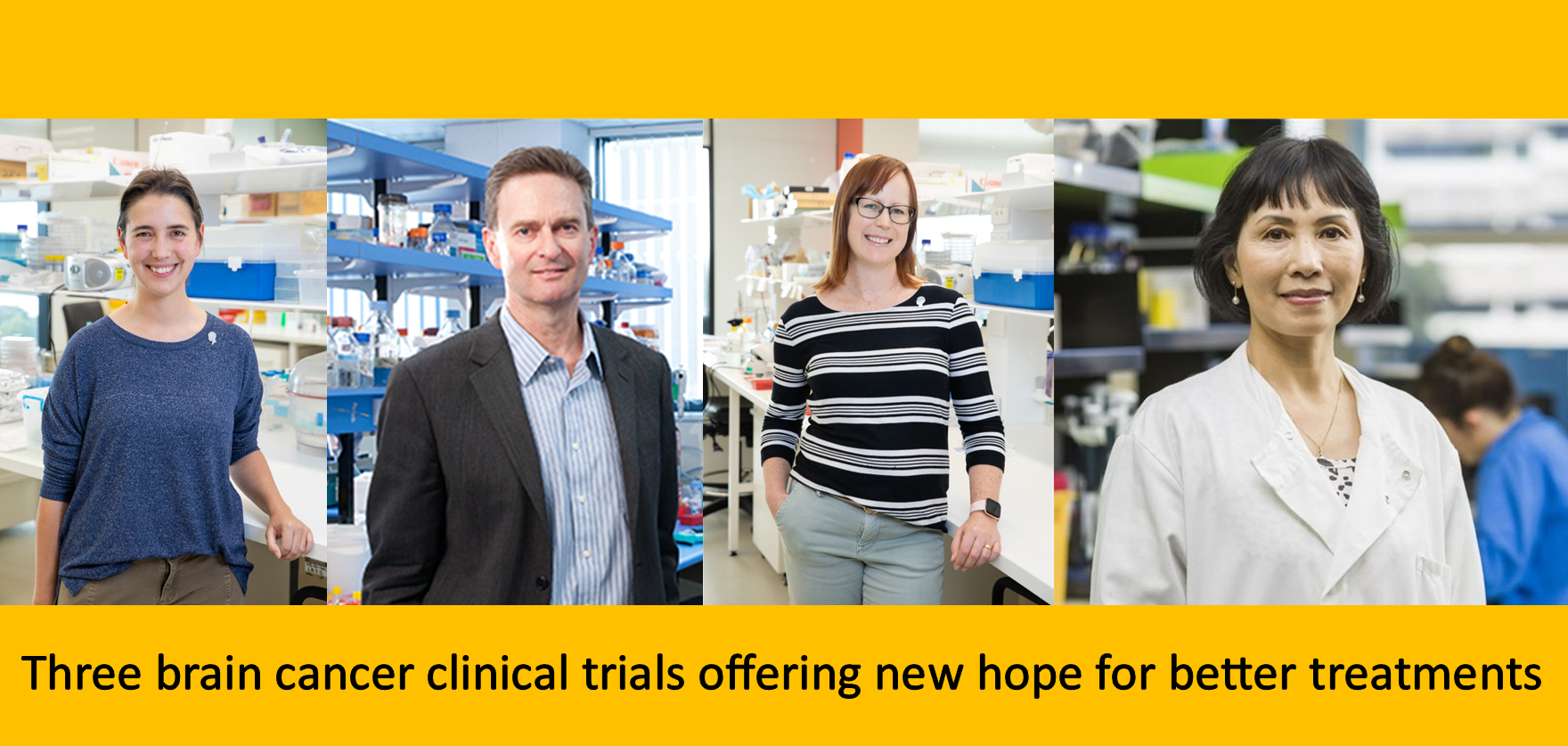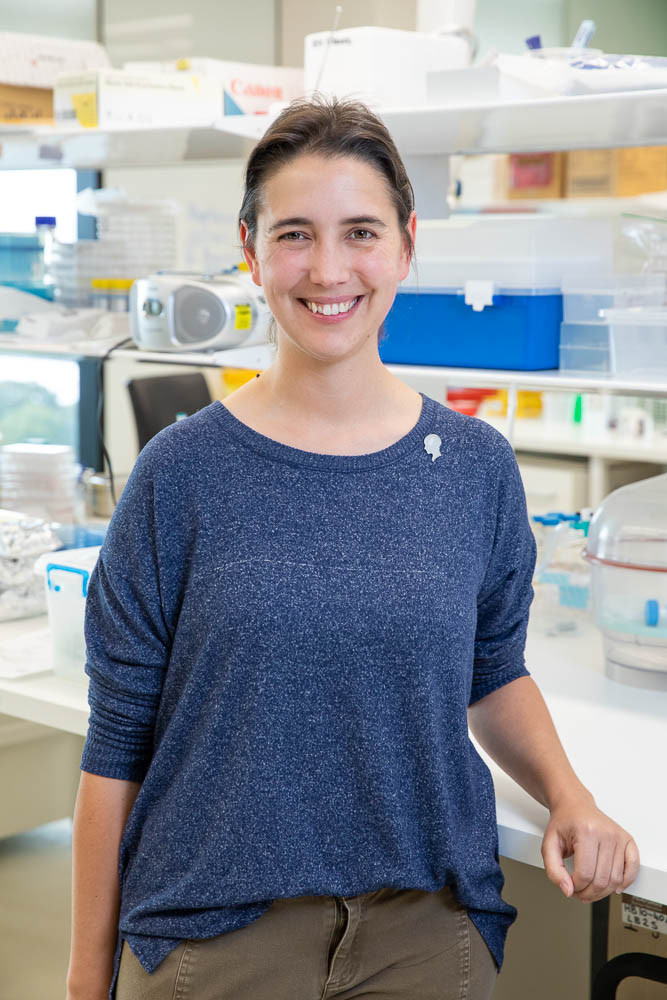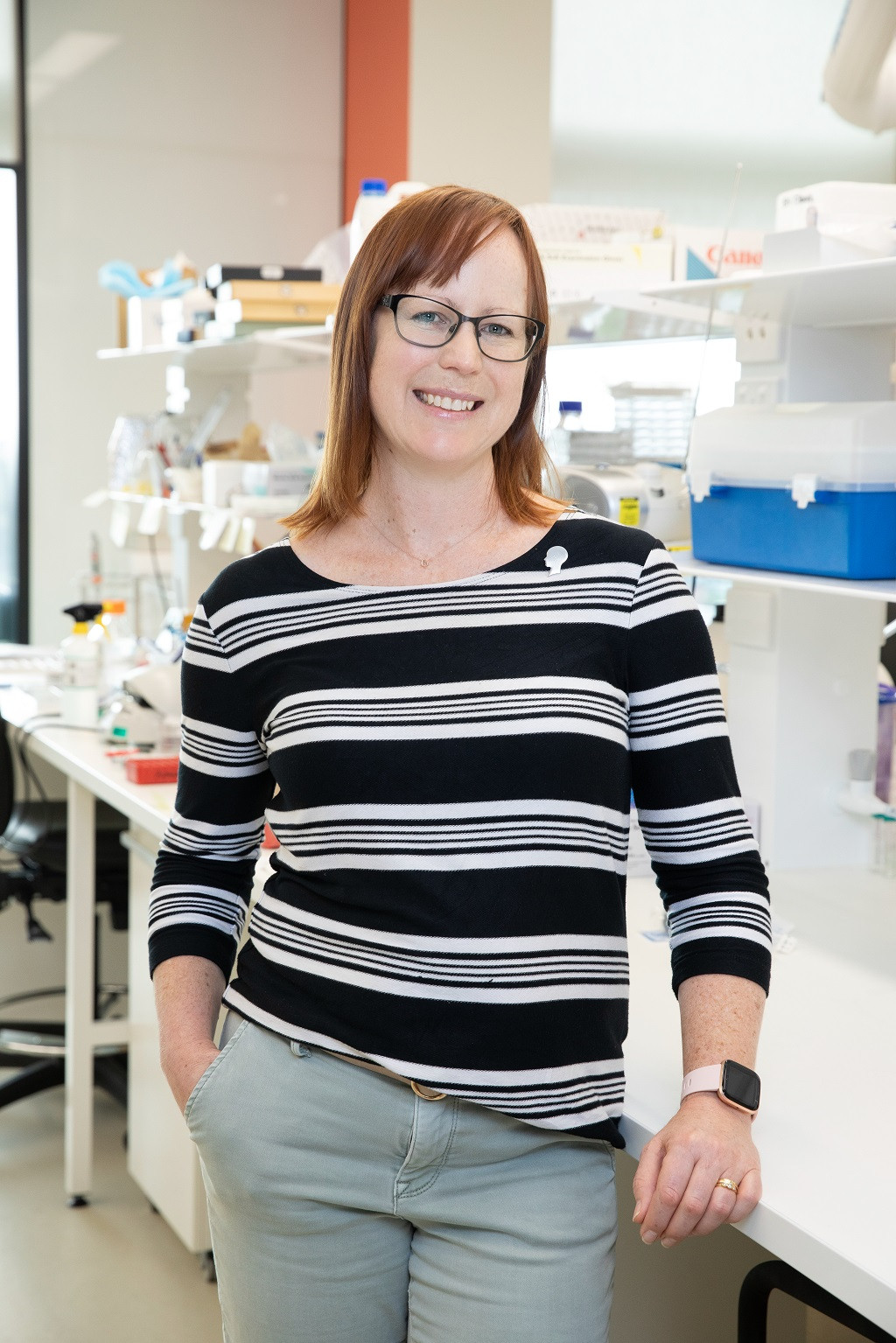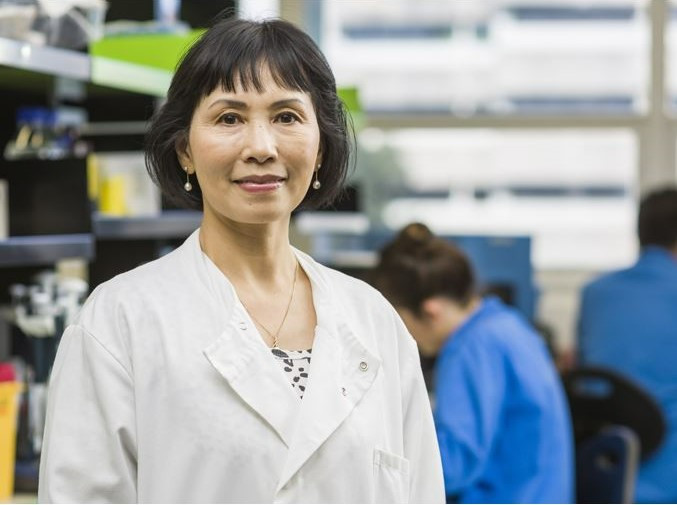Three brain cancer clinical trials offering new hope for better treatments

Brain cancer kills more children in Australia than any other disease and more people under 40 than any other cancer. That’s why the NRF funds critical research to discover better treatments and improve survival rates and quality of life for patients and their families. Thanks to our generous supporters 3 NRF funded research projects have progressed to in-human clinical trials.
LEVI’S-CATCH Clinical Trial - GD2-CAR-T Cell Therapy in children with diffuse intrinsic pontine glioma (DIPG)
DIPG is a fatal brain tumour that affects children, with the average survival being less than 1 year. This groundbreaking clinical trial is now open at Sydney Children’s Hospital to all children across Australia.
This research has been led by RAH Cancer Clinical Trials Unit Director Professor Michael Brown and Centre for Cancer Biology Research Fellow Dr Tessa Gargett.
“Each patient’s cells will be transported here to South Australia where we’ll genetically modify them. When given back to the patient, they will track down and destroy their cancer cells, leaving the healthy cells intact,” Prof Brown said.

“We are delighted that this work has led to a clinical trial for kids suffering from such a terrible disease and we’re hopeful we can help as many children and their families as possible,” said Dr Gargett.

Further details, contacts and eligibility criteria: https://www.anzctr.org.au/Trial/Registration/TrialReview.aspx?id=383497&isReview=true
KARPOS - Clinical Trial of GD2-CAR-T Cell Therapy in adults with recurrent glioblastoma
Glioblastoma is the most common and lethal form of brain cancer with an average survival of around 15 months. Despite the abysmal prognosis there are still limited therapy options available. Led by Associate Professor Lisa Ebert, the KARPOS clinical trial is investigating if CAR-T cell therapy can improve the prognosis for these patients. NRF seed funding will support the first 6 glioblastoma patients to receive this new type of therapy as part of the trial, expected to commence this year at the Royal Adelaide Hospital.

The CAR-T cells used in both this and the LEVI’S CATCH clinical trial target the GD2 glycolipid tumour antigen. This antigen has been shown to be overexpressed on GBM tumour cells but not healthy cells, making it an ideal target to deliver the CAR-T therapy directly to the cancer cells, leaving the healthy cells intact.
Further details, contacts and eligibility criteria:
https://www.anzctr.org.au/Trial/Registration/TrialReview.aspx?id=385001&isReview=true
ATTACK-1 trial - Clinical trial of Auceliciclib in patients with advanced solid tumours and in combination with Temozolomide in recurrent/refractory glioblastoma
University of South Australia Professor Shudong Wang and Adelaide biotech company Aucentra Therapeutics are now recruiting up to 50 glioblastoma patients across 3 Australian sites including Flinders Private Hospital - to trial the new experimental drug Auceliciclib, a highly potent and selective CDK4/6 inhibitor
“Despite surgery, chemotherapy and radiotherapy, glioblastoma is an incurable cancer. One reason is due to late diagnosis where the tumour has already spread in a way that makes surgical removal very difficult,” Prof Wang says.

“Also, there are very few existing drugs that can cross the blood-brain barrier. The brain does an excellent job of protecting its most vital organ from toxins and pathogens. The downside is that it keeps out vital medication.”
Auceliciclib has demonstrated in pre-clinical models that it can cross the blood-brain barrier, which makes it an ideal drug candidate for brain cancer.
If the drug proves successful in the clinical trial, it will also be an important breakthrough for brain tumours metastasized from other cancers including breast and lung.
Further details, contacts and eligibility criteria: https://www.anzctr.org.au/Trial/Registration/TrialReview.aspx?ACTRN=12621000479808




